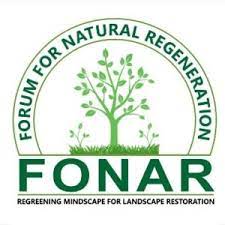The Forum for Natural Regeneration (FONAR), Non-Governmental Organisation, has begun a natural regeneration project in the Nabdam District in the Upper East Region to help restore degraded farmlands and empower women to improve livelihoods.
The project, dubbed: “Farmer Managed Natural Regeneration for Women’s Empowerment and Livelihoods Project (FMNR4WELP),” aims at improving soil fertility and food productivity.
The two year-pilot project, with funding from Awaken Trees Foundation, an Austrian based organization, is to be implemented in the Dasang and Kparaboug communities.
Awaken Trees Foundation seeks to safeguard and enhance women’s land-based livelihoods using Farmer Managed Natural Regeneration (FMNR) techniques.
Mr Sumaila Saaka, the Executive Director of FONAR, at a stakeholder meeting at Nangodi, said the project was part of efforts to restore degraded lands, and promote sustainable use of natural resources to improve the wellbeing of the people using community- led FMNR approach.
“It is in line with Ghana’s ministries of Lands and Natural Resources, Food and Agriculture goals, policies and programmes to restore degraded lands to improve soil fertility for food security and reduce rural poverty,” he said.
Mr Saaka explained that the rate at which trees were being felled, especially in northern parts of Ghana, was alarming and deepening desertification, drought and climate change challenges.
These posed threats to access to food and water by rural communities.
He said women were most affected by the challenges since they depended on tree resources, including economic trees like shea and Dawadawa, for survival.
Mr Saaka, therefore, advocated integration of FMNR approach into land restoration strategies to ensure that existing shrubs were regenerated to improve tree species, soil fertility and agriculture production while ensuring economic trees were harvested for processing purposes.
He said the project targeted 300 people, including men, directly and 1,000 people indirectly in the two pilot communities.
The women would be given monetary support to help them process some of the economic trees.
“When they are processing these trees and gaining money out of it which is sustainable, it will lessen their dependency on cutting down the trees to sell because that is always the last resort when they do not have anything to do.” he said.
“It would further strengthen efforts at achieving the Sustainable Development Goals, particularly goals One, Two and Five, which put emphasis on ending poverty, hunger and gender inequality respectively,” he added.
Mrs Agnes Anamoo, the District Chief Executive, Nabdam, lauded the initiative and urged all stakeholders, including the Department of Agriculture and the Forestry Commission, to integrate natural regeneration into their programmes and scale it up to benefit many communities.
FMNR is an easy and low-cost land and forest restoration technique used to increase the number of trees in the field without necessarily planting new ones.
It is done through protection and management of existing trees and shrubs to regenerate naturally from tree rootstocks, stumps and dispersed seeds by animals.

















